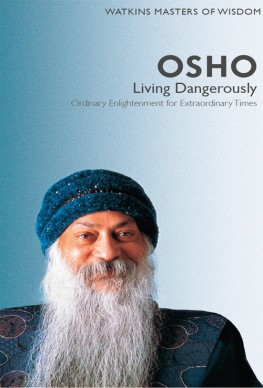Osho - Three Steps to Awakening
Here you can read online Osho - Three Steps to Awakening full text of the book (entire story) in english for free. Download pdf and epub, get meaning, cover and reviews about this ebook. year: 2016, publisher: Osho Media International, genre: Religion. Description of the work, (preface) as well as reviews are available. Best literature library LitArk.com created for fans of good reading and offers a wide selection of genres:
Romance novel
Science fiction
Adventure
Detective
Science
History
Home and family
Prose
Art
Politics
Computer
Non-fiction
Religion
Business
Children
Humor
Choose a favorite category and find really read worthwhile books. Enjoy immersion in the world of imagination, feel the emotions of the characters or learn something new for yourself, make an fascinating discovery.
Three Steps to Awakening: summary, description and annotation
We offer to read an annotation, description, summary or preface (depends on what the author of the book "Three Steps to Awakening" wrote himself). If you haven't found the necessary information about the book — write in the comments, we will try to find it.
Osho: author's other books
Who wrote Three Steps to Awakening? Find out the surname, the name of the author of the book and a list of all author's works by series.
Three Steps to Awakening — read online for free the complete book (whole text) full work
Below is the text of the book, divided by pages. System saving the place of the last page read, allows you to conveniently read the book "Three Steps to Awakening" online for free, without having to search again every time where you left off. Put a bookmark, and you can go to the page where you finished reading at any time.
Font size:
Interval:
Bookmark:
Three Steps to Awakening

ISBN: 978-0-88050-092-0
Copyright 1965, 2017 OSHO International Foundation
www.osho.com/copyrights
Osho image and cover design OSHO International Foundation
All rights reserved. No part of this book may be reproduced or transmitted in any form or by any means, electronic or mechanical, including photocopying, recording, or by any information storage and retrieval system, without prior written permission from OSHO International Foundation.
This title is also available as a print edition ISBN: 978-1-938755-73-6
Originally published in Hindi as Samadhi Ke Teen Charan. The material in this book is from a series of talks by Osho given to a live audience. The complete OSHO text archive can be found via the online OSHO Library at www.osho.com/library
OSHO and OSHO Vision are registered trademarks of OSHO International Foundation. www.osho.com/trademarks
OSHO MEDIA INTERNATIONAL
is an imprint of
OSHO INTERNATIONAL
New York Zurich Mumbai
www.osho.com/oshointernational
Distributed by Publishers Group Worldwide
www.pgw.com
Library of Congress Catalog-In-Publication Data is available
eBook ISBN: 978-0-88050-092-0
Waking up or awakening means that the dream is over whatever was known up to now remains no longer. So it is difficult to say what awakening means, because your language is of sleep. At present, whatever can be told to you or whatever can be understood by you will be in the language of the dream. If I say that you will get happiness, then you will think of the happiness which you have known in the dream. If I say that you will not get misery, then you will think of the same misery which you have known in the dream.
If you think, you will not attain. That is why all the buddhas have kept quiet. Whenever someone asked what will happen after the awakening they just kept quiet. They said, Wake up and see, because this is beyond the language which you know, or this is beyond your understanding which you have through language. Neither your happiness nor your misery is there. Neither your peace nor your restlessness is there. Neither your satisfaction nor your dissatisfaction whatever you have known up to now is not there. The scriptures you have known up to now are also not there. The images of the divine which were made by you are also not there. Your notions about heaven and hell are also not there. When you are not there, your notions also will not be there.
There is something which cannot be described, which cannot be defined you can call it brahman, Vishnupad, jinpad or buddhahood, but even by these words nothing can be known. If you wake up, only then can you know. A dumb man cannot describe the taste of sugar, but he can enjoy it.
What will happen after awakening? You will taste the divine, the taste which you have been trying to get all these past lives but could not get you missed it always. It just cannot be described. If you are bored with the way you have been living, then wake up. But if you have not even a little bit of interest in it yet, then just turn over and go to sleep again.
But you will have to wake up one day. Sleep cannot be eternal, and sleep cannot be the ultimate rest, and darkness cannot be the experience of the ultimate truth. Sooner or later you will have to get up it all depends on you. But whenever you awaken you will repent for not having woken up earlier it just meant spreading out your hand it was so near.
Osho
The Song of Ecstasy
It is a hot summer day in the early 1960s and a group of people interested in meditation have gathered in a secluded retreat in the hills of Rajasthan, India. Few, if any, can imagine they are participating in an event which will prove to be the first seed of a revolutionary experiment in the flowering of human consciousness one which will eventually transform the lives of millions of people all over the world.
Osho, the man around whom these people have gathered, was at that time a professor of philosophy at Jabalpur University. This first meditation camp in Ranakpur, Rajasthan, became a model for the evolution of his work over the following years.
I want you to become a participant in the bliss I am experiencing as the result of my awakening, says Osho in these talks, which became his first published book. And so I have decided to call you.... Pardon me if my call disturbs your sleep and disperses the fog of your dreams.
In his dream-breaking, Osho carefully guides us through the maze of our own minds, through our process of creating thoughts, toward a zone of silence. His genius is in full flight. And the subject couldn't be more mysterious nor important: ones own self. He unravels fundamental questions about what meditation is and how one can begin and sustain a life of meditation. He does this with a precision, thoroughness and compassion that can only come from a master one who knows, and is able to convey what he knows. He points us as far as one can with words toward the inner world of the self, of our being.
Osho, himself, has spoken of this book on several occasions. When the second prime minister of India traveled to Russia, a copy of The Perfect Way was in his hands. And when someone who had been seeking his whole life stumbled upon The Perfect Way at the age of ninety, he commented, All my learning of the scriptures was futile, only this small book is enough.
To be without thoughts is meditation, Osho says. When there are no thoughts, it is then we come to know the one hidden by our thoughts. When there are no clouds, the blue sky is revealed.
This book is page after page of blue sky.
I am thinking about what subject I should speak to you on. There are so many topics and the world is filled with so many issues that this hesitation is very natural. There are many schools of thought, theologies, and doctrines about truth. I fear that my talks could even increase the burden that is already very heavy on humanity. I feel very hesitant, afraid to say anything because it may stick in your mind. Im afraid you may cling to what is being said, afraid you may find what I am going to say very appealing, and that it might make a place for itself in your mind.
Man is troubled and in anguish because of thoughts and doctrines. It is because of doctrines that truth is never born in the life of man. Borrowed knowledge and what others say are always within him, and they are a hindrance for the truth. Knowledge is not attained from the outside; whatever is gathered from the outside holds back the truth.
I am also outside of you. Whatever I say will also be from the outside; you should not think of it as knowledge. It is not knowledge; it cannot be knowledge for you. Whatever someone else gives you cannot be your knowledge and there is even a danger that it could cover up your ignorance. Your ignorance can be covered up, hidden, and you may start to feel you know something.
When you hear something about truth, you feel that you have known the truth. After reading about truth, you think that you have known it, and so you become handicapped and incapable of attaining the truth.
First, let me tell you that whatever comes from the outside can never be your knowing. Of course, someone could then ask me why I am speaking. Why am I saying anything? I am outside and I am saying something. The only thing I want to say is, take whatever comes from the outside as being outside of yourself; dont consider it your knowing. Whether it comes from me or from someone else does not matter.
Next pageFont size:
Interval:
Bookmark:
Similar books «Three Steps to Awakening»
Look at similar books to Three Steps to Awakening. We have selected literature similar in name and meaning in the hope of providing readers with more options to find new, interesting, not yet read works.
Discussion, reviews of the book Three Steps to Awakening and just readers' own opinions. Leave your comments, write what you think about the work, its meaning or the main characters. Specify what exactly you liked and what you didn't like, and why you think so.

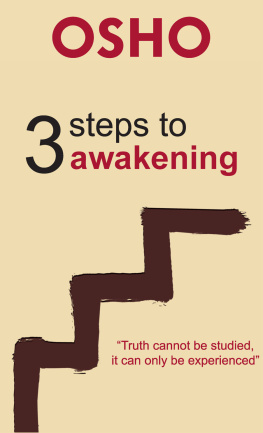
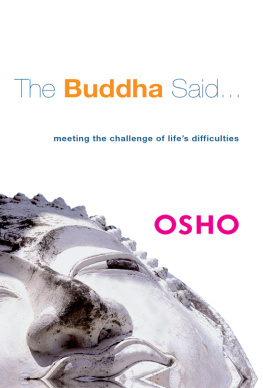
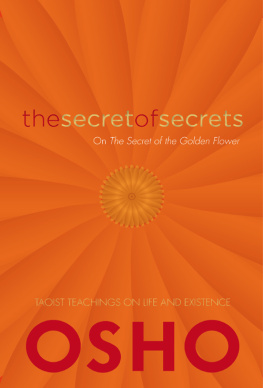
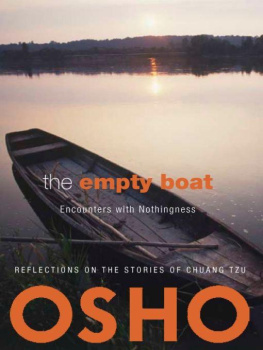
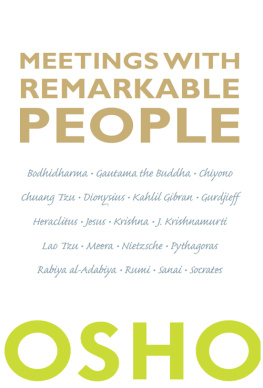
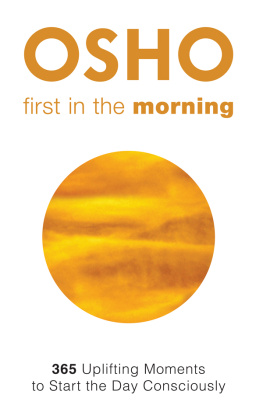

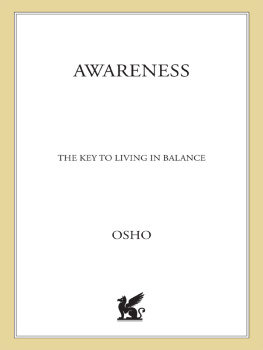

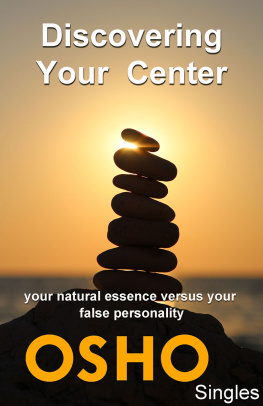
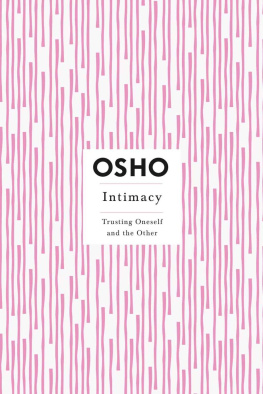
![Osho [Osho] - The Art of Dying](/uploads/posts/book/114253/thumbs/osho-osho-the-art-of-dying.jpg)
